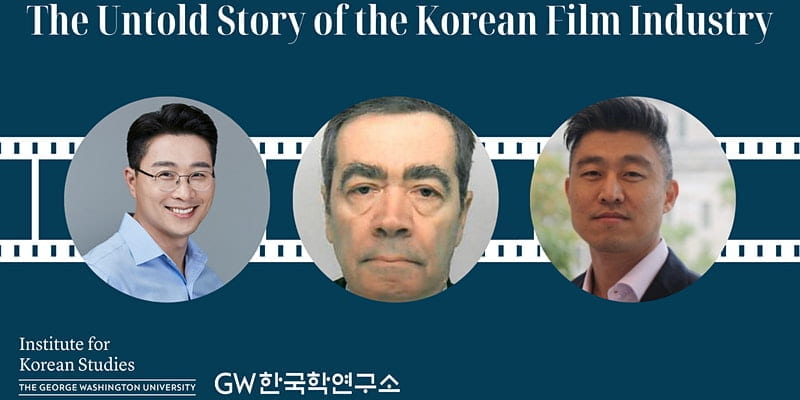Friday, October 22, 2021
4:00 PM – 5:30 PM EDT
Zoom Event
Korea’s cultural industries are among the most dynamic in the world, and the film industry is no exception. While many people are aware of Korea’s success in international music charts or at international film festivals, very few realize that these results rely on industrial success that reflect systematic business efforts and a prudent film policy. Such an approach differs markedly from the protectionist film policies adopted by many countries, particularly in Europe.
The first presentation for this seminar will compare the Korean film industry and the industries of five critical countries – China, France, Japan, the UK, and the US. In presenting both robust and meaningful results, this comparison covers a long period – from 1980 to 2018. It shows that the Korean industry has first caught up, then outperformed its European counterparts in almost every dimension: more films produced, larger box office revenues, larger national audience for both US and domestic films, and less interventionist regulations. Last but not least, Korean films demonstrate better quality as expressed by both audiences’ and critics’ perspective.
The second part will present the unique balance between dynamic, risk-taking business strategies, and public policy in Korea. In particular, it will examine the effects of the elimination of protectionist measures such as import and screen quotas, and the limited use of subsidies. All these aspects are in sharp contrast with European countries. This presentation will conclude by raising key issues for discussion with the audience related to digitization and globalization.
This event is on the record and open to the public.
Speakers

Jimmyn Parc is a Visiting Lecturer at Sciences Po, France and a Research Associate at the Institute of Communication Research, Seoul National University in Korea. His research projects are related to the competitiveness of organizations, industries, and countries. His current research focuses on the cultural industries that are faced with a changing business and trade environment as well as new challenges from digitization.

Patrick Messerlin is Professor Emeritus of Economics at Sciences Po Paris, and Chairman, Steering Committee of the European Centre for International Political Economy (ECIPE), Brussels. His current research deals with economic and trade relations between Europe and East Asia, with a particular focus on cultural industries.
Moderator

Immanuel Kim is Korea Foundation and Kim-Renaud Associate Professor of Korean Literature and Culture Studies. Prior to working at the George Washington University, he was Assistant Professor in the Department of Asian and Asian American Studies at Binghamton University (SUNY). Dr. Kim received his Ph.D. from the University of California, Riverside. His research is on North Korean literature and film, and he has translated a North Korean novel called Friend by Paek Nam-nyong (Columbia University Press, 2020).


